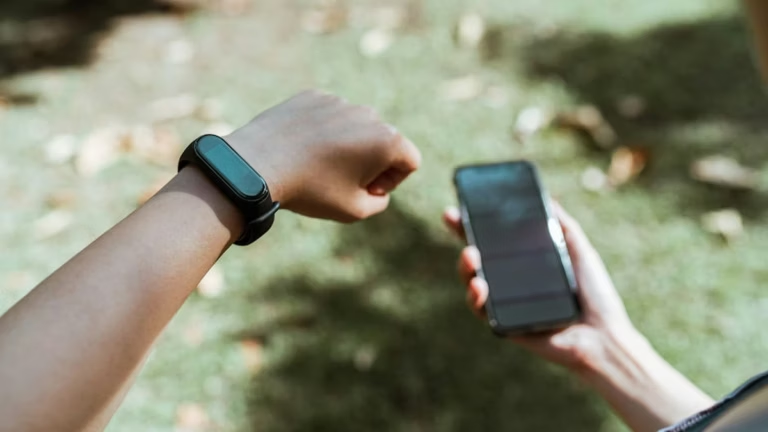AI-Powered Health Monitoring: The Latest in Wearable Technology
Wearable technology has come a long way from simple step counters. Today, AI-powered health monitoring devices are providing individuals with unprecedented insights into their well-being. From tracking vital signs to predicting potential health risks, these devices are transforming the landscape of personalized healthcare. This blog post will explore the latest advancements in AI-driven wearable technology and how they are reshaping the way we manage our health.
The Rise of AI in Wearable Health Tech
The integration of Artificial Intelligence (AI) into wearable devices has unlocked a new era of possibilities. AI algorithms can analyze vast amounts of data collected by these devices to identify patterns, detect anomalies, and provide personalized recommendations. This goes far beyond simply tracking steps or heart rate; it’s about understanding the context behind the data and using it to improve health outcomes.
Key Benefits of AI-Powered Health Monitoring
- Early Detection of Health Issues: AI can detect subtle changes in vital signs that might indicate an emerging health problem, such as heart arrhythmia or sleep apnea.
- Personalized Insights and Recommendations: AI algorithms can tailor health advice based on an individual’s unique data profile, providing customized recommendations for diet, exercise, and sleep.
- Improved Chronic Disease Management: Wearable devices can help individuals with chronic conditions like diabetes or heart disease monitor their health in real-time and make proactive adjustments to their treatment plans.
- Remote Patient Monitoring: AI-powered wearables enable healthcare providers to remotely monitor patients’ health, reducing the need for frequent office visits and improving access to care.
Cutting-Edge Wearable Technologies
The market is flooded with a variety of AI-powered wearable devices, each offering unique features and capabilities. Here are some of the most exciting technologies:
Smartwatches and Fitness Trackers
These devices are the most common type of wearable health tech. They typically track:
- Heart rate
- Activity levels
- Sleep patterns
- Blood oxygen levels
Advanced models now incorporate AI to provide more detailed analysis and personalized insights. For example, some smartwatches can detect irregular heart rhythms and alert the user to seek medical attention.
Continuous Glucose Monitors (CGMs)
CGMs are small devices that continuously monitor blood glucose levels in people with diabetes. AI algorithms can analyze CGM data to predict glucose fluctuations and provide alerts to prevent hypoglycemia or hyperglycemia. This allows for better diabetes management and improved quality of life.
Smart Clothing
Smart clothing is embedded with sensors that can track a range of physiological parameters, such as:
- Muscle activity
- Body temperature
- Sweat composition
This technology is particularly useful for athletes and individuals engaged in physically demanding activities, as it can provide real-time feedback on performance and prevent injuries.
Wearable ECG Monitors
These devices provide a convenient way to monitor heart activity outside of a clinical setting. They can record an electrocardiogram (ECG) and transmit the data to a healthcare provider for analysis. AI algorithms can also be used to automatically detect abnormalities in the ECG, such as atrial fibrillation.
Practical Tips for Using AI-Powered Wearables
To get the most out of your AI-powered wearable device, consider these practical tips:
- Choose the Right Device: Select a device that meets your specific health needs and goals.
- Wear it Consistently: Consistent wear is crucial for accurate data collection and analysis.
- Sync Your Data Regularly: Sync your device with your smartphone or computer to ensure that your data is up-to-date.
- Review Your Data Regularly: Take the time to review your data and identify any trends or patterns.
- Share Your Data with Your Doctor: Share your data with your doctor to get personalized advice and recommendations.
The Future of AI-Powered Health Monitoring
The future of AI-powered health monitoring is bright. As AI technology continues to advance, we can expect to see even more sophisticated and personalized health insights. We may soon see wearables that can:
- Detect early signs of cancer
- Predict the onset of mental health conditions
- Personalize drug dosages based on individual responses
These advancements have the potential to revolutionize healthcare and empower individuals to take control of their health and well-being.
In conclusion, AI-powered health monitoring is transforming the way we approach healthcare. By providing personalized insights and enabling early detection of health issues, these technologies are empowering individuals to live healthier and more fulfilling lives. As the technology continues to evolve, we can expect to see even more exciting innovations that will further revolutionize the landscape of personalized healthcare. Embrace the future of health and explore the potential of AI-powered wearables to enhance your well-being.






